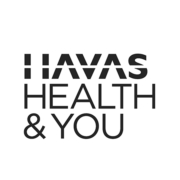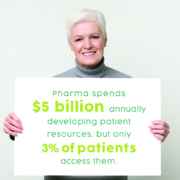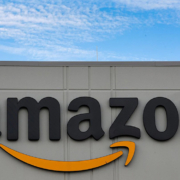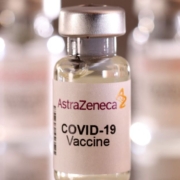How the shift to virtual patient care has impacted pharma communications: re-thinking the customer journey
How the shift to virtual patient care has impacted pharma communications: re-thinking the customer journey
By Jay Appel
One of the COVID pandemic’s many far-reaching ripple-effects on the healthcare industry is the accelerated adoption of virtual healthcare. Virtual patient care is likely to see a permanent long-term shift, not just a short-term increase. More healthcare professionals and patients are adjusting to the opportunities of virtual healthcare. Virtual care offers big upsides of convenience and cost savings. But virtual patient care requires a whole new mindset since patients and their healthcare providers are not getting the same level of interaction as in-person visits. Virtual patient care is shaking up our health ecosystem, and it’s forcing our entire industry to re-think the customer journey.
Advertising agencies have a significant role to play in helping pharma companies adapt to this changing customer journey when reaching patients and healthcare providers/practitioners (HCPs). This is especially important when targeting and educating the HCPs who are no longer practicing in an office and have gone exclusively remote/virtual.
Let’s look at a few of the best communication strategies, alternative channels, and messaging adjustments that ad agencies can deploy to help pharma companies support the virtual customer experience – for patients and healthcare professionals.
Patient’s virtual journey: Delivering better patient experiences and better healthcare outcomes
Patients love the convenience of virtual healthcare. According to a 2021 McKinsey poll, two-thirds of physicians agreed that virtual healthcare is more convenient than in-person care for patients, and 60 percent of patients agreed. However, there is a disconnect between patients and physicians about whether virtual care adds value for healthcare professionals.
This identifies an opportunity for ad agencies to support healthcare practices and their patients by making virtual care more beneficial for both sides. It also makes the argument that virtual healthcare cannot be a one-size-fits all approach. Ad agencies can help pharma companies support healthcare professionals in reaching different segments of patients who have different needs, preferences, and comfort levels around virtual care. Let’s see how.
How agencies can help pharma companies maximize the patient experience in virtual healthcare:
- Use patient-focused strategies: As shown in the McKinsey survey, different segments of patients have different comfort levels and want different things from virtual healthcare. Some categories of care, like mental health and behavioral health, might be a better fit for a virtual-first approach. Other categories like primary care or gynecology might need a “real-life first” approach, with virtual healthcare as a supplement. Some physicians might prefer a hybrid model that incorporates some virtual elements, with a primary emphasis on in-person care delivery. But whatever the blend of virtual and in-person care, it’s important for pharma companies to focus on the patient’s needs. Make the user experience more personal and more targeted.
- Get creative with digital marketing channels: Virtual healthcare is an ideal fit for digital marketing channels. Pay attention to which digital channels patients are using to research healthcare information and to chat about their health concerns, then use those same channels to reach patients with advertising and digital marketing. Connected TV devices (CTV) such as Roku and streaming services (Amazon, Hulu, Netflix) have become favored viewing options, so pharma brands should shift media placements accordingly.
- Adapt messaging: Tailor the message based on where the patient is on their journey. Is a patient looking for diagnostic information on a search engine? Are they signing up for an online community or social media page that serves patients who have a particular condition? Or are they watching YouTube videos about possible side effects from a prescription medication? Ad agencies need to help pharma companies speak to the specific concerns of patients at each stage of their experience with a medical condition.
Along with the patient journey, ad agencies can help pharma brands adapt to the new opportunities of virtual healthcare and improve their virtual communication with physicians and healthcare practices. Let’s look at how the virtual journey for physicians is affecting their relationships with pharma brands.
Physicians’ virtual journey: From spam to “speed dating”
The pandemic’s abrupt shift to virtual meetings and digital communications left doctors feeling inundated by digital marketing from pharma brands. An Accenture survey from late 2021 found that 64 percent of HCPs said they’re getting too much digital content from pharma and 65 percent said at least one pharma company had “spammed” them during the pandemic.
Pharma reps have less access to HCPs than ever before. In-person face time with doctors at their offices has been replaced by FaceTime calls; virtual pharma rep meetings have become the preferred norm among doctors. And physicians are much choosier now about what they need from pharma and why they would want to take a meeting with a sales rep.
This makes it more important for pharma brands to maximize their occasions of engagement with doctors. Here are a few strategies to make this happen.
How agencies can help pharma companies connect virtually with physicians
Go omnichannel: Meet physicians where they want to talk. Use an omnichannel strategy to connect with HCPs across all available channels and company touchpoints for a seamless customer experience. Be sure to include social media.
Speed dating, not spam: Make the messages more personal, more customized, and more succinct to break through the clutter. Bombarding your physicians with too much digital communication might give you a reputation as a spammer. Instead, use a virtual speed dating approach. Make the pharma pitch succinct, polished, and highly targeted to the physician’s unique needs.
Agencies play a vital role in guiding pharma brands through the customer’s evolving virtual journey. What worked in 2022 might evolve further in 2023. By staying adaptable, strategic, and creative, pharma brands can successfully connect with their target audiences in personal and meaningful ways.
Jay Appel is chief digital officer, The Bloc.


 Reuters
Reuters






